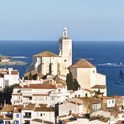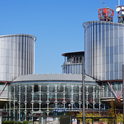
Already in office for over nine years, with three election wins behind her, she was still riding high in the polls. She enjoyed widespread respect abroad—as soulmate of Ronald Reagan, and easily the most powerful woman in world politics. The pace of European integration was quickening and she challenged it with typical vigour and directness.
The 1988 conference was the first under Thatcher where Europe took centre-stage, as she started drawing the dividing lines across which bigger battles would later be fought. Now that her official and personal papers for that year have been released, we can see more clearly what happened during 1988, and why.
The idea of the Bruges speech began, ironically, in the Foreign Office. They were looking for an opportunity for the prime minister to make a “positive” speech, contriving an invitation from the College of Europe in Bruges to give an address which, it was envisaged, would focus on European reforms Britain was leading on, such as the single market, and highlight other areas, like defence, where countries could work more closely together.
But events, together with Jacques Delors—the increasingly powerful President of the European Commission—would soon scupper that plan. The first half of 1988 had seen West German Chancellor Helmut Kohl shift his country into a much more pro-European mode during his six-month presidency of the Council, while the French President, François Mitterrand, had been re-elected on a strongly European platform. Critically, the two leaders agreed to begin moving towards a single currency, with Delors appointed to chair a committee of central bank governors to study the question. On 6th July, Delors told the European Parliament that, within 10 years, he expected 80 per cent of economic and social legislation to be decided at European level and talked provocatively about the Commission being an “embryo European government.”
Thatcher delivered a sharp riposte later in July, condemning the “airy-fairy ideas” of certain European leaders on BBC radio’s Jimmy Young Show. She said of Delors: “I think he went over the top and I do not think he should have said it.” A single currency, she said, “will never come in my lifetime—and I hope never at all.” The senior FCO official on Europe, John Kerr, drily noted that “the No 10 market for constructive language on the Community” was “poor.”
Delors carried on undaunted. On 8th September, he won a standing ovation at the TUC by urging the British labour movement to support the Commission in building a “platform of guaranteed social rights,” including for collective bargaining, in European law. He invited the unions to join the “architects of Europe.” Many Conservatives feared the reversal of their hardest-fought achievement—the defeat of trade-union power.
All this was changing the prime minister’s thinking about Europe. As she saw it, Britain had taken a lead in creating the single market, masterminded by a British Conservative Commissioner, Arthur Cockfield. She had previously declared it would be “a major factor, possibly the major factor, in our competitive position in European and world markets into the 21st century.” She had been prepared to concede limited majority voting in the Council to overcome vested national interests that stood in the way of market liberalisation. But she did not expect success on the single market to generate momentum for integration in other policy fields that she might not favour. Nor did she expect the removal of barriers to free movement to be used to justify stronger, more interventionist regulatory policies from the centre. She now feared that Delors wanted to use the concessions she had made on voting to develop what she saw as a left-wing agenda.
“Thatcher rebuked Delors, condemning ‘airy-fairy ideas’”
She decided not to reappoint Cockfield as a Commissioner and to use the Bruges speech to fight back. But this was not a Brexit speech. The text retained some established Conservative thinking: “Britain,” she said, “does not dream of some cosy, isolated existence on the fringes of the European Community. Our destiny is in Europe, as part of the Community..” But the important message was that Europe’s new priorities—of moving beyond the single market to develop a social Europe and single currency—represented an attempt to “introduce collectivism and corporatism” and “concentrate power at the centre of a European conglomerate.”
Thatcher herself played only a limited role in writing that speech. Charles Powell, her influential private secretary, took an initial Foreign Office outline and re-drafted it to reflect her new thinking. The only significant outside influence was Hugh Thomas, the distinguished historian then chairing her favourite think tank, the Centre for Policy Studies, where one of us was then working as director of studies.
Thomas, who died this year, was a romantic pro-European, but he planted the critical idea that has inspired many Tories to embrace Brexit: that supra-nationalism could lead to collectivism. He proposed the initial version of what became the speech’s defining sentence: “We have not successfully rolled back the frontiers of the state in Britain, only to see them re-imposed at European level, with a European super-state exercising a new dominance from Brussels.”
Thomas also suggested another important theme—the proposition that, as Thatcher put it: “We shall always look on Warsaw, Prague and Budapest as great European cities” and that Central and Eastern Europe was integral to the European story. The prime minister boldly anticipated the events of 1989. It was extraordinarily prescient for that time. Few others were thinking beyond the Cold War boundary. She was probably influenced, via Thomas, by Zbigniew Brzezinski, the former US National Security Adviser, who had recently delivered a powerful lecture to the CPS predicting the collapse of the Soviet bloc.
In her memoirs, Thatcher says that “Not even I would have predicted the furore the Bruges speech unleashed.” She describes a vigorous argument over dinner with half the Belgian government. Ironically, although her speech was principally directed to Delors and other European leaders, the effect was bigger at home. Powell confirms that this was not Thatcher’s intention: stirring domestic patriotism wasn’t what the speech was “designed for… She thought she was setting a different agenda for Europe.”
Thatcher went further in her conference speech the following month. For the first time, she explicitly argued that supra-nationalism in Europe could lead to a socialist super-state. She presented a choice “between two kinds of Europe: a Europe based on the widest possible freedom for enterprise or a Europe governed by socialist methods of centralised control and regulation.”
She said that: “There is no doubt what the Community’s founders intended. The Treaty of Rome is a charter for economic liberty… Today that founding concept is under attack from those who see European unity as a vehicle for spreading socialism… Ours is the true European ideal.” Every paragraph of this elicited strong applause: the tide was turning in the party, and she was leading the shift.
The fears she vented came to shape Tory thinking, but—looking back—we can see that Europe did not take the route she had warned about. The success of the single market has indeed proved to be one of the key “Thatcherite” reforms, boosting Britain’s growth. The EU created a single currency, but we were never obliged to join. There has been relatively little EU intervention in the labour market—the minimum wage, for example, came from Westminster. Instead the Union did enlarge to the east, just as Thatcher imagined. On balance, she won more than she lost.
And yet, she fretted she would not do so, and she expressed that anxiety so powerfully and passionately that this would shape the Conservative perceptions of Europe for a generation. The long shadow of Bruges hangs over British and European politics, in a way none of the protagonists of 1988 expected. Rare is the speech that changes anything much in politics, but 30 years on, we can see that Thatcher made two that together would make that fateful autumn a true turning-point for her party—and, in time, for her nation.












